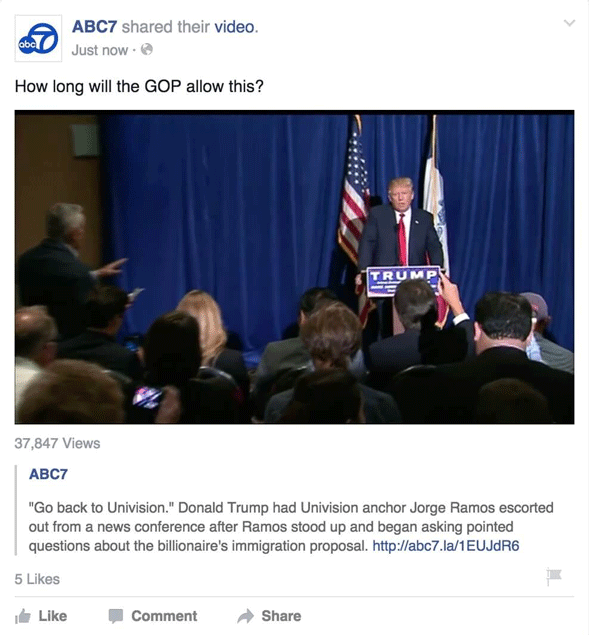Trump: Pandering on Oreos
Hotel magnate and Republican presidential candidate Donald Trump confirmed on Tuesday that he will stop eating Oreos, a decision he came to after Nabisco parent company Mondelez International, announced last month that it’s replacing production lines in Chicago with new ones at a plant in Salinas, Mexico.
“I’m never eating Oreos again,” Trump said on Tuesday, reaffirming statements he first made last week at a rally in Alabama, where he said, “Mexico is the new China . . . I love Oreos. I will never eat them again. Nabisco closes the plant in Chicago and they are moving the plant to Mexico.”
A quick fact-check: that last sentence isn’t true. Mondelez is not closing the Chicago plant, but it is cutting 600 jobs there as a result of the new investment in Mexico, the Associated Press reports.
And why would a company making a foodstuff, whose key ingredient is sugar, find it cheaper to manufacture that in Mexico?
TOTALLY UNRELATED QUESTION: Why does Mexican Coke taste so much better than Coke made in the U.S.?
OR IS IT UNRELATED AFTER ALL? If you’re familiar with the absurd ways that the U.S. Government subsidizes sugar, you’ll see these questions are related. As the Dartmouth Business Journal explains:
America’s sugar farming industry is currently one of the most protected industries in the United States. Two centuries ago, the U.S. government embarked on this protectionist trend in order to gain the loyalty of the sugarcane farmers in the Louisiana Territory. Today, the original program has evolved into a series of complicated import tariff-rate quotas (TRQs) that heavily distort the sugar market. These TRQs are combinations of quotas, limits on the amount of the good that can be imported, and tariffs, taxes on these imported goods. The TRQ used to protect the American sugar industry allows a certain amount of sugar to be imported at lower tariffs, but for all sugar exceeding this amount, tariffs rise to around 150% of the sugar’s cost. On average, Americans pay 3 times the world price for sugar. This huge price distortion is one of the largest in the U.S. and has had far-reaching negative consequences, both at home and abroad.
One of the things this policy does, is drive businesses dependent on sugar across the border to Canada or Mexico.
If a candidate wants to talk about Oreos being made in Mexico — and if that candidate is a classical liberal, limited-government conservative — that candidate will pledge to undo sugar quotes and tariffs.
If, instead, the candidate is a huckster making a cheap populist appeal to Americans too ignorant to understand what’s going on, that candidate will run his mouth about Nabisco and pledge not to eat Oreos.
UPDATE: I have talked about sugar protectionism and its unintended side effects before, here.



